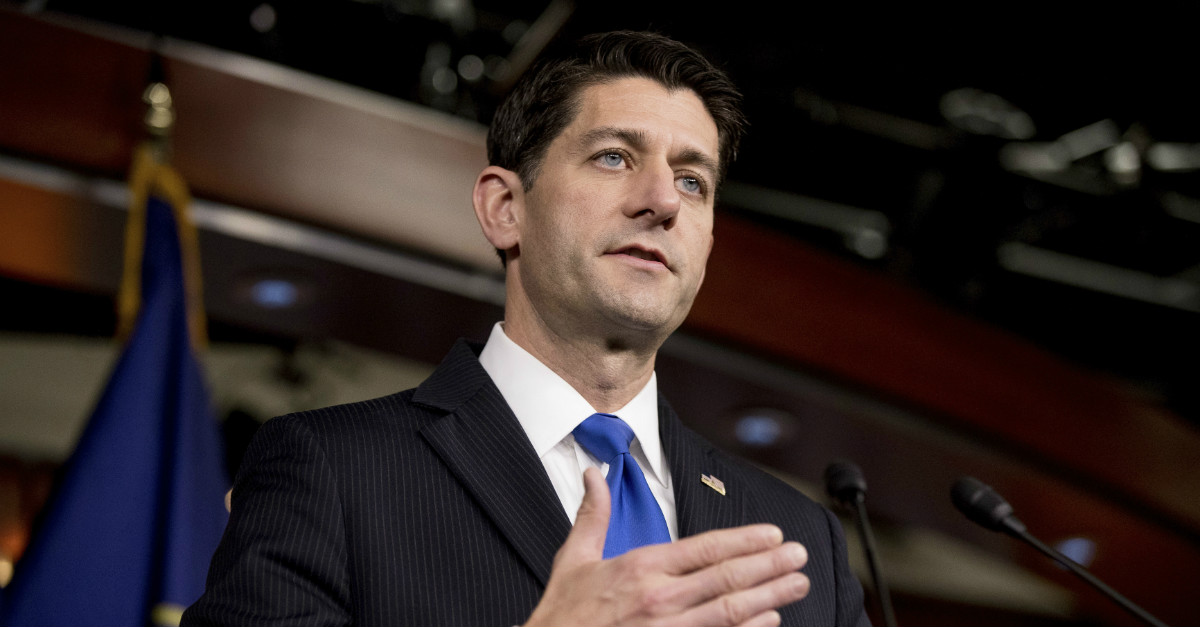The great scholar of Islam Bernard Lewis once mulled opening an essay with this line: “In the history of human thought, science has often come out of superstition. Astronomy came out of astrology. Chemistry came out of alchemy. What will come out of economics?”
Videos by Rare
Lewis’s quip is a bit unfair to the economist profession as a whole, but his critique applies perfectly to modern political economics, whose practitioners we’ve elevated into high priests and to which we’ve ascribed shamanistic properties. “Economist says GDP will grow by X percent in 2017” has become a common headline, as though the vast array of forces and decisions that make up an economy could ever be pinpointed with such precision. The most superstitious people in the world today aren’t Christians or phone psychics; they’re wonks at websites like Vox.com who credulously report these predictions as gospel.
Turn on cable news yesterday and you probably saw a blazing chyron: “CBO: Republican health plan will leave 24 million more uninsured.” When a GOP congressman had the temerity to observe on CNN that the Congressional Budget Office had gotten much wrong about Obamacare, Wolf Blitzer practically spat, “That was under Democrats! Republican appointees run the CBO now,” as though registering as a Republican bestows upon you clairvoyant powers. The fact is that economists have no idea how many people are going to lose insurance under Ryancare, and neither does the White House, and neither do the Democrats.
RELATED: CBO report: American Health Care Act will cut the deficit by $337 billion, but it could cost you
The CBO really did miss the runway with several of its Obamacare predictions, as recently laid out at Forbes by Brian Blase. The cornerstone of its error was to overestimate how many people would enroll in the exchanges under pressure from the individual mandate—22 million, it said, compared to about 10 million in real life—and underestimate how many would sign up under the Medicaid expansion, off by about 50 percent. This was a serious and consequential mistake because it misled as to the core nature of Obamacare, presenting the law as more reorganization of the existing private market and less as dumping people onto government rolls, which is what actually happened.
Yet we continue to regard the CBO as an Oracle of Delphi, a cave thick with oleander smoke from which every piece of legislation must emerge cradled in the arms of a hooded figure. Hence the self-serving scramble back in 2009 to cram all manner of deficit reduction into the original Obamacare legislation. Fast-forward to today and the 1099 requirement has been repealed, the Cadillac tax has been infinitely postponed, yet the Democrats still saw fit to shoehorn them in there, transparently fraudulent sacrificial offerings so their bill could be anointed with that godly mark of deficit neutrality.
And that’s real takeaway here: the CBO isn’t a soothsayer, but an analysis handcuffed to whatever legislators happen to stick on a piece of paper—a postcard of how a bill appears at a particular time. That can provide us with a valuable framework on which to structure our thinking, but it’s very different from reality, whose messy intrusions frequently fog its crystal balls.
RELATED: Paul Ryan’s Obamacare replacement is a cosmetic rush job, and there’s a reason for that
I don’t mean to pick on the CBO. The Council of Economic Advisors’ had that overly sunny projection in 2009 that unemployment would peak at 8 percent if only we implemented President Obama’s stimulus, and all the way back in 1965 the cost of Medicare was predicted to be far lower than it actually is. Most economists, being professionals who understand their limitations, are the first to attach rafts of warnings to their projections, yet here in the political sphere, we’re quick to forge their guesses into cast-iron weapons and start beating each other with them. Hence the British political class, still awaiting that post-Brexit vote recession, which will descend like a plague one of these days.
There is no man on earth, not even one with an economics Ph.D., capable of predicting with precision the vastly complex health care sector, premised as it is on the variegated and often fickle decisions made by irrational man. Think otherwise and it’s not far to believe that government technocrats armed with data might be able to tame and manage such an intricate beast—which is how we got the mess that is Obamacare in the first place.



